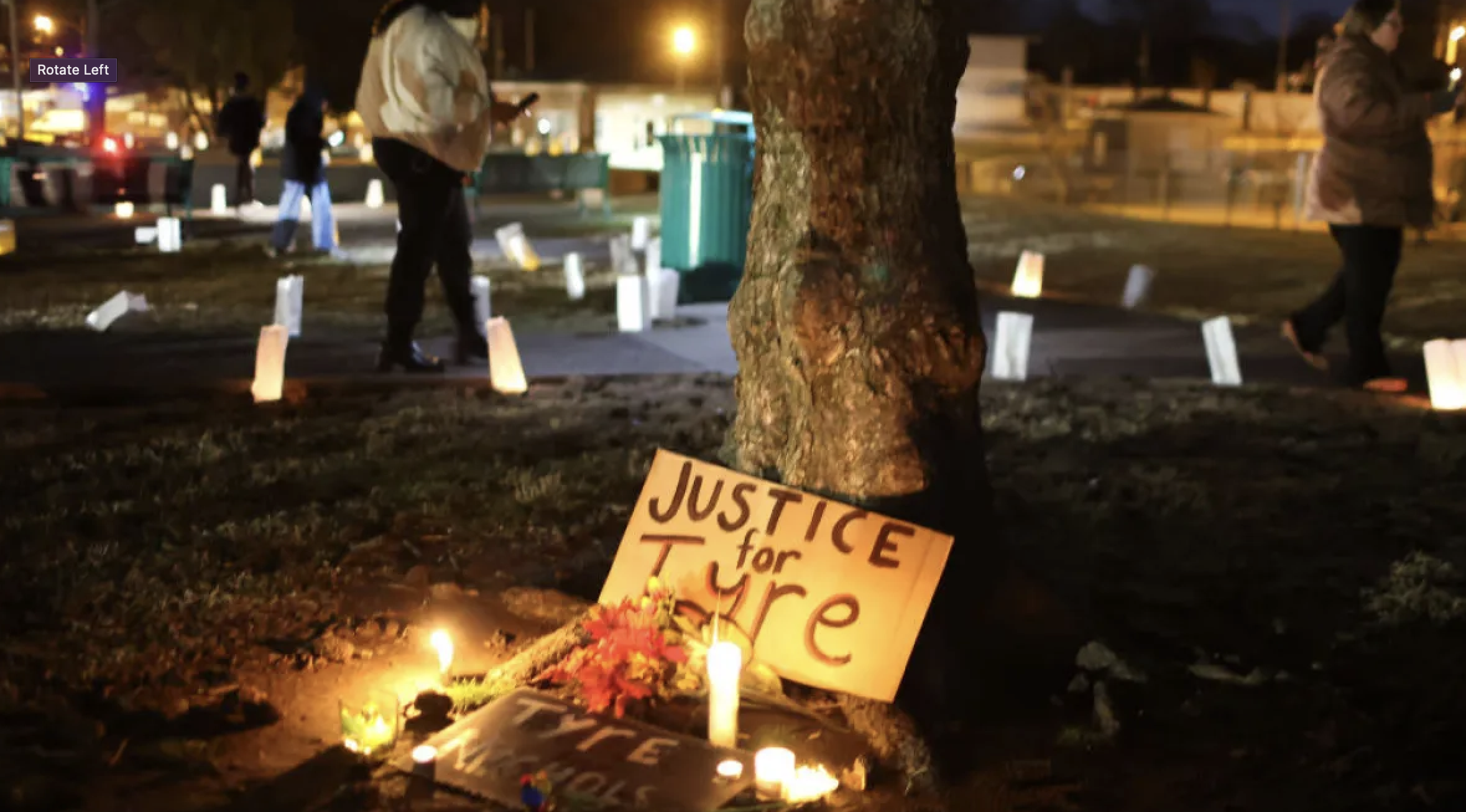On January 7th, 2023, what should have been nothing more than a routine traffic stop turned violent when 29-year-old Tyre Nichols, a black man, was pulled over by Memphis police officers. Body camera footage showed that Nichols was pulled out of his vehicle, held down, and pepper sprayed. When Nichols attempted to run away, the officers pursued him, eventually catching him before beating him for nearly three minutes. Nichols could be heard repeatedly crying out for his mother, who lived just a block from where he’d been stopped. The officers eventually stopped and set a bleeding Nichols against a car, where he would sit for roughly twenty minutes without receiving any first aid. The officers were seen on body camera and aerial footage high-fiving and fist-bumping each other. Nichols was eventually taken to the St. Francis Hospital in Memphis but died three days later. The autopsy report identified the cause of death as “brain injuries from blunt force trauma.”
The ongoing federal case trying three of the former officers responsible for Tyre’s death, Justin Smith, Tadarrius Bean, and Demetrius Haley, began on September 9th. They are charged with the use of excessive force, unlawful assault, failure to intervene in the assault, and failure to provide medical aid. All three have pleaded not guilty. The two officers involved, Emmitt Martin III and Desmond Mills Jr., have taken plea deals, with Martin testifying in the current trial. All the evidence emerging from the prosecution seems to affirm the fact that Nichols’ death was entirely unnecessary. While testifying, Martin said of Nichols: “He wasn’t a threat.” According to Elizabeth Rogers, an assistant U.S. attorney, the brutal attack on Nichols was a “run tax,” a term used by some Memphis police officers to describe the unofficial punishment given to anyone who flees attempted police custody.
Deaths like Nichols are an indication that police brutality remains a major issue in our country. In 2024, as of September 23, police have killed 970 people in the U.S., 234 of whom were black. Studies show that Black Americans are 2.9 times more likely to be killed by police than their white peers. There have been various attempts made by legislators to try and curb police violence: shortly after the death of George Floyd, several states passed bills that banned the use of tear gas and chokeholds, required law enforcement to use body cameras, and called for more transparency in police operations. In 2022, President Biden passed an executive order that, among other things, promised to create a database logging police misconduct, improve investigations into civil rights violations by police officers, require federal law enforcement agencies to have active body cameras during operations, and ban the use of chokeholds unless given orders to act with deadly force. But Biden’s aforementioned order only came after a more comprehensive bill, the George Floyd Justice in Policing Act, failed to pass both houses of Congress in 2021; the bill was reintroduced in August of 2024 but has yet to be considered by Congress.
There are still significant changes that need to be made within the American policing system. Despite consistent demands for its abolition, qualified immunity—a principle upheld by the Supreme Court that keeps public officials from being held legally responsible for misconduct —continues to keep many corrupt police officers from facing justice. Police officers are also untrained in crisis management and are sometimes sent in to deal with those suffering from mental illness. According to a study from the Treatment Advocacy Center, a non-profit dedicated to reforming “how we as a society serve people with severe mental illness,” at least 1 in 4 fatal interactions with law enforcement involve a person with mental illness. These are just two issues that need to be addressed under the broader umbrella of police brutality.
The task of reformation can seem just as daunting as it did back in 2020, but that doesn’t change the fact that protesters and everyday citizens are fully capable of enacting change, just like back then. Whether through registering to vote, taking a course on Black History, education on systematic racial inequality, or having frank conversations with others about existing racial prejudices, there are many options available for those looking to help create a future without deaths like Nichols’.
Tyre Nichols’ family has set up a GoFundMe page with the goal of raising money to help support themselves while they work to bring Tyre justice. They also intend to use the funds to build a memorial in Tyre’s memory. If you are capable of donating, please consider doing so.
